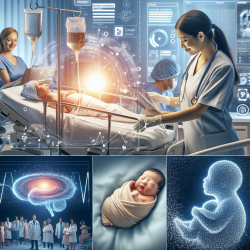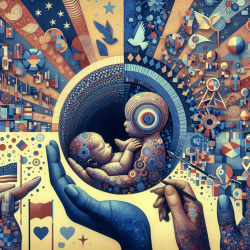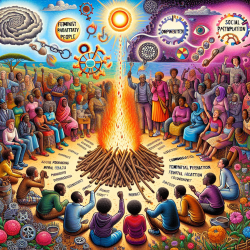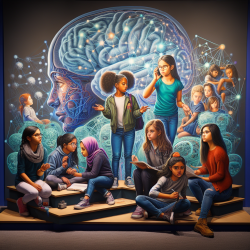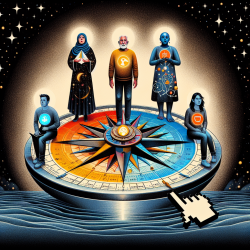Introduction
In the realm of maternal mental health, childbirth-related post-traumatic stress disorder (CB-PTSD) is a significant concern. Affecting millions of women annually, this condition often goes undiagnosed due to the lack of standard screening protocols. However, recent research has shown promise in using artificial intelligence (AI) and machine learning (ML) to detect CB-PTSD through the analysis of childbirth narratives.
Understanding the Research
The study titled "AI and narrative embeddings detect PTSD following childbirth via birth stories" explores the potential of AI models, specifically the ChatGPT and text-embedding-ada-002 (ADA) model, to screen for CB-PTSD. By analyzing narratives from women who recently gave birth, the research aims to identify markers of PTSD using advanced natural language processing (NLP) techniques.
Key Findings
The research involved a sample of 1,295 women who shared their childbirth experiences. The study found that the ADA model outperformed ChatGPT and other large text-embedding models in identifying CB-PTSD, achieving an F1 score of 0.81. This indicates a high level of accuracy in detecting PTSD symptoms from narrative data alone.
Implications for Practitioners
For practitioners in the field of mental health, these findings offer a new avenue for early detection and intervention. By incorporating AI-driven narrative analysis into their practice, clinicians can potentially identify at-risk individuals more efficiently and accurately. This approach not only enhances diagnostic capabilities but also allows for timely interventions that can significantly improve outcomes for affected women and their families.
Encouraging Further Research
While the study presents promising results, it also highlights the need for further research. Practitioners are encouraged to explore the integration of AI tools in their diagnostic processes and contribute to the growing body of research in this area. By doing so, they can help refine these models and expand their applicability to other mental health conditions.
Conclusion
The use of AI and ML in analyzing childbirth narratives represents a significant advancement in maternal mental health care. As these technologies continue to evolve, they hold the potential to transform how mental health disorders are detected and treated. Practitioners are urged to stay informed about these developments and consider how they can be integrated into their practice to enhance patient care.
To read the original research paper, please follow this link: AI and narrative embeddings detect PTSD following childbirth via birth stories.
